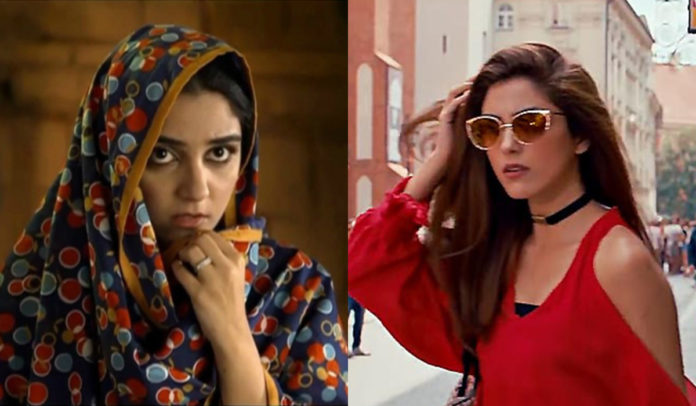In Pakistan, the film industry does not have a completely different identity from the television industry; at least not post the revival phase. The Pakistani film industry is more or less an extension of the Pakistani drama industry with not just the actors but the same production companies, directors, technicians, writers, etc. involved in creating content for both the industries.
The mainstream Lollywood movies and dramas produced locally for the TV audience are, generally speaking, both targeted towards the same group of audience. We no longer have superstars which are exclusive for the big screen – the one who reigns the small screen has a better chance of winning on the big screen. The filmmakers bank on this by opting to have those actors in their movies who already have made their presence known on the small screen.
The absurdity of having opposite rules for TV and film
While this may save a lot of trouble for the filmmakers and actors alike, who get to enjoy the best of both worlds as they hop from set-to-set, what it does is create confusion for the audience. If the films and dramas are the mirrors of the society, what exactly is the Pakistani entertainment industry trying to portray with its movies and dramas that, by the way, are poles apart from each other despite being similar in so many respects?
Turn on the TV and watch any primetime Pakistani drama on-air on any channel of your choice. Chances are the protagonist of the show is a woman who is a victim to one form of abuse or another. Her eyes would be full of tears but her resolve would be strong. She would endure all the zulm with an unshaken faith without uttering a word of complain. The burden of morality would be all on her; she would be dressed in an appropriate attire that would make the audience at home go, “Yehi toh hamari sakafat hai.”
Compare this to the Pakistani films and we see that the heroines there don’t have to go through this treatment. The women on the big screen are free from the burden of being morality personified; a film’s heroine is free to make bold choices, dress up without the multiple layers of clothing. She is free to ride motorcycles, jump from buildings, leave her spouse at the first hint of betrayal, express her sexuality as she pleases; all of this without anyone questioning her position as the female lead of the project and not be called a vamp that she would’ve been had she exhibited similar traits on the small screen.
The absurdity of opposite rules continues
Keeping aside this bizarre set of rules that dictate that a heroine on the big screen and the small screen be completely opposite of each other, if we just see the stories of Pakistani dramas and compare them with that of Pakistani movies, we once again see a rather odd disparity. Pakistani dramas would make you think that all the world and its problems exist within the four walls of a house. Every bit of happiness and sadness comes from there, lives there, and ultimately dies there. The outside world has no bearing on that.
In Pakistani movies, there is little to no such personal life of the characters. They are, for the most part, unbothered by these mundanities of daily family life. Their social circle is wide and family occupies very little of it. The characters of a Pakistani movie are always out on adventures that take them very far away from their homes. The element of individuality shines brighter on the big screen.
A final word
We are not saying that the stories and the execution of content created on both the mediums should be the same. That, of course, defeats the whole purpose of it. But when the people producing the content, the people making the content come to life, and the audience towards whom the content is targeted are all same for both the mediums, there should be some harmony between the two industries. Accepting one thing on the big screen and then completely reprimanding it on the small screen creates a confusing situation that ends up presenting a picture that is too far away from the actual reality.




